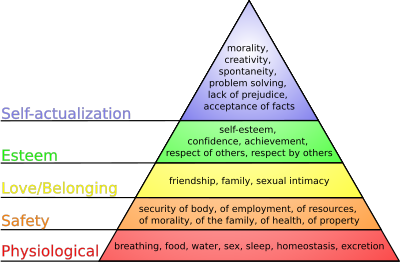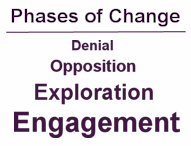Posted by Jeff Kelly on July 7, 2008
(England, July 2, 1508) – In the latest edition of the Ye Atlantic Monthly, Nicholas of Carr despairs over the toll that books and reading are taking upon the minds and spirit of man. A noted jongleur and philosopher, Nicholas attests that he and many members of the jongleur guild are losing their ability to sing epic poems from memory. He plainly believes books are the cause. “It is as if these instruments are agents of Lucifer trying to steal away God’s gift of memory”, he laments in the article. And the danger may be more than the loss of the jongleur gift. While it seems ludicrous, Nicholas foresees a future in which even peasants have learned to read books. People from every class would lose the ability to remember even the simplest parable or psalm as they rely on the insidious books to remember it for them. While admitting that relying on books would provide him more epics and ideas to share with his audience, Nicholas worries that doing so will weaken his mind and spirit. “To rely on the crutch of a book when I sing a poem cheats my audience and demoralizes me,” declares Nicholas of Carr.
OK, unless you are an Atlantic Monthly reader, you are probably thinking that this is a very strange way to start a post. If you would like to better understand my lame attempt at parody, please read this:

Is Google Making us Stupid?
Nicholas Carr’s love/hate relationship with technology have given us very interesting food for thought such as Does IT Matter?, The Amorality of Web 2.0, and his recent, The Big Switch: Rewiring the World, From Edison to Google. All his works are thought provoking and often challenge ideological extremism and divisiveness that tends to echo rampantly in the blogosphere.
I will leave the critical diatribe to others (see Jay Cross’s petulance). This is a blog on learning and performance improvement. So, in that regard, let me share the ideas that struck me as I read the article:
Acquired ADD – Carr laments how he and colleagues can’t read lengthy articles any longer. They have been conditioned by the Web (so he contends) to do drive-by reading (my term d’art), only gathering the information they need and then moving on. Yea, so? Let’s face it, we are moving into an attention economy. My time is valuable, I need to get what I need to perform and move on quickly if I want to remain competitive. And when I do compete well enough to win some leisure time, I will still “scuba dive in the sea of words” (Carr’s reference to deeply reading a whole book). But that book better be engaging (which is rare in non-fiction) or I’ll quickly find another book that is. Does this mean we are worse readers, or just demanding better quality reading?
It’s the Economy Stupid – Like it or not, we all have to compete in this dynamic economy. That means using the best tools available to innovate, solve problems, and out produce your competitors. Carr shares that pathologist Bruce Friedman’s feels his thinking has taken on a “staccato” quality – “scanning short passages of text from many sources online.” So? If the only downside is you can’t plod through War and Peace any longer and the upside is you perform more efficiently, I’m OK with that.
The Brain : Mind Barrier – Carr’s most dark and insidious concern throughout the article is that we are flirting with a future where machines have surpassed the human brain. He even claims that the Google gang stated that “we’d be better off” if are brains were replaced by an artificial intelligence (I’m guessing they stated “supplemented” instead of “replaced”). Indeed, Carr closes with his fears of a 2001: A Space Odyssey world where “people have become so machinelike that the most human character turns out to be a machine.” Well, that makes for a nice, spooky movie, but it is fiction. To make that leap, we would have to agree that the brain and the mind are one. We would have to have concluded that self-awareness, reasoning, cognizance, and intelligence are all just a by-product of an efficiently wired brain. I don’t believe that conclusion is already settled and universal. The Web may become an ancillary brain for us, but it can never replace the human mind.
 Maslow on Google – If we drop the economic argument (after all the market may not always know what is best for us) of performance improvement, how does Carr’s claim impact us as individuals? Will our collective inability to finish lengthy tomes upset our personal success? If it does turn out that a “staccato intellect” results in me better meeting my needs, it is well worth it. To contemplate this, let’s revisit Maslow’s hierarchy of needs as influenced by the Web:
Maslow on Google – If we drop the economic argument (after all the market may not always know what is best for us) of performance improvement, how does Carr’s claim impact us as individuals? Will our collective inability to finish lengthy tomes upset our personal success? If it does turn out that a “staccato intellect” results in me better meeting my needs, it is well worth it. To contemplate this, let’s revisit Maslow’s hierarchy of needs as influenced by the Web:
- Physiological Needs (Breathing, Drinking, Eating, Excretion) – Other than the fact that the eventual demise of newspapers and magazines will alter my excretion behaviors, I do not believe the Web impacts us at this level.
- Safety Needs (Personal Security, Financial Security, Health and Well-Being) – Even if the Web has given me ADD, it has provided me with a host of tools and information to find a better home, clothing, invest more wisely, and learn how to take better care of my health.
- Social Needs (Friendship, Family, Sex) – Others could argue finer points, but overall I would say the Web has proven to be a wonderful platform to help meet these needs. It helps us find and stay in touch with friends, find spouses and communicate with the families we create with them, and find opportunities to have sex (with others or alone ;).
- Esteem Needs (Self-Esteem, Confidence, Achievement, Respect for/of Others) – Now on this need, the Web’s influence becomes arguable. The Web, like any tool or communication platform, can be used for good and bad. Via the Web I can build great esteem, or have my esteem destroyed by others. I’m going to call this one a draw now, but as we grow into the new mores of radical transparency and attention trust, the good will soon outweigh the bad.
- Self-Actualization Needs (Morality, Creativity, Spontaneity, Problem Solving) – And finally, we reach the level most directly addressed by Carr’s concerns. This is our need to become the best we are capable of becoming. Learning, creating, reading, curiosity are all the traits that Carr worries the Web might be undermining. Again, I will argue that the good outweighs the bad. Through “drive-by learning” I can still gather more ideas that feed my morality, creativity, and problem solving abilities. Inevitably, I will still be forced to more deeply contemplate those ideas as I weave them into my world view. And often the Web (or people on the Web) will be what challenges me to contemplate them more deeply.
Learning 2.0 – And finally onto what this blog is supposed to be considering: How do people learn differently in this new, Web-driven era? Carr’s article included many examples of how new technologies (such as the mechanical clock) have literally changed the way we think and behave. Carr’s basic concern is the Web has ruined our ability to read deeply which (he references to the work of Maryanne Wolf) will ruin are ability to think deeply. (Which begs the question: Can illiterate people think deeply?) There is certainly no research to support that assertion, yet. But there is no doubt that the Web is changing the way we work and learn. So, the important question for us in learning is: How does our pedagogy have to change to support this new way of working and learning? Even if this new era of acquired ADD does not alter our brain function or our ability for higher-level thought, it is a death knell for lengthy (boring) learning – whether it be in a classroom or online. We need to move from structured learning programs to flexible, nimble chunks of instruction along the lines of what used to be called “electronic performance support systems” (and is now just called “Google”). This does not mean the extinction of complex learning programs, but those programs’ design and delivery need to radically change. They must rely on more self-directed, mentor-monitored learning that is tightly integrated with daily job performance to meet the learning and development objectives.
So ends my Nicholas Carr inspired prattle. If you made it this far, I congratulate you! Your Web-induced ADD is not as advanced as Bruce Friedman’s, who is quoted in Carr’s article:
“I can’t read War and Peace anymore. I’ve lost the ability to do that. Even a blog post of more than three or four paragraphs is too much to absorb. I skim it.”
Tags: Atlantic Monthly, behavior, brain, google, Internet, Jay Cross, Learning, Learning 2.0, Maryanne Wolf, Maslow, mind, Nicholas Carr, performance, reading, web
Posted in: Adapting, Internet, Learning











